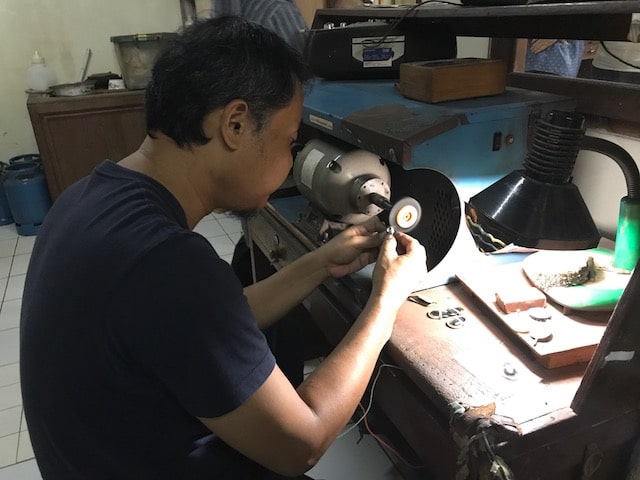
Claudiaexpat has lived in Jakarta for four years. In this article she shares what she has learned about working in Indonesia as an accompanying partner.
I have decided to write this article because working in Indonesia as an accompanying partner is an intricate matter. As a mobile career coach, I see more and more expats striving to find the right solution when accompanying their partners in the beautiful archipelago, and wanting to keep on with their professional path – or create a new one.
What I am about to share will not give you a clear indication of the procedure to follow to work in Indonesia as an accompanying partner. The situation is very complicated. Even legal advisors at times are uncertain about what solution to suggest.
I simply want to share all the info I gathered both when living in Indonesia and by talking to a wealth of accompanying partners working there. Before embarking on any of the indicated solutions, I strongly recommend you to verify them with an expert in Indonesia.
You won’t be allowed to work
The first thing one must be aware of is that if your partner has a working contract in Indonesia, and you enter the country accompanying him or her, you will not be allowed to work.
Failure to comply with this rule can result in the termination of your partner’s contract, and in you being declared persona non grata and chased out of the country in no time.
Under the radar?
Many accompanying partners who don’t want to abandon their professional identity, though, decide to follow the very common practice of working in Indonesia under the radar.
I have met dozens of foreigners working in a variety of fields without declaring it. They were paid outside of Indonesia and tried to maintain a low profile, for instance by not telling anyone what they were doing (apart from, obviously, their colleagues).
What can happen (I heard at least three such cases) if you are paid in Indonesia (even if it is in cash) is that someone denounces you and you can get caught with the money in your hands and being unable to justify it. In this case the government can decide (and they usually do) to kick you out of the country immediately.
The best thing to do if you really cannot give up working in Indonesia, is to get a regular visa or situation. This is not easy. It’s costly both in terms of money, time and energy, although depending on the situation you find yourself in and the path you decide to pursue, it could be faster than what you think.
Let’s see the different options:
1. Establishing a PT PMA
This is the legal form to follow for any foreigner who wants to generate revenues within Indonesia independently. You can find more information about it here.
According to Giulia, one of our members who founded Mia Chia, a healthy food business in Indonesia, the procedure is quite smooth and not so complicated as one could expect.
2. Finding an employer who is willing to sponsor you
 This is becoming harder by the day because Indonesian law favours the employment of Indonesians in all fields.
This is becoming harder by the day because Indonesian law favours the employment of Indonesians in all fields.
An expat working in Indonesia needs to have well documented skills that have not yet been developed within the Indonesian workforce so far.
If a company is interested in your profile and is willing to sponsor you, they will take care of all the procedures, which require a new set of documents (see here how it works). In this case you will have to detach yourself from your DINAS (dependent visa, i.e. the visa linked to your partner working contract). You will fly to Singapore to issue a new Kitas (Kitas is a limited stay or a temporary residency permit that all foreigners living in Indonesia for longer than a month must have) at the Indonesian Embassy (you will need a letter of your employer). Once back in Indonesia, your Kitas will be processed at the immigration, and you can start working legally.
3. Partnering with an Indonesia person for your business
I have seen many expats forming a partnership with a local person who will officially handle all the administrative and bureaucratic matters. This requires a lot of trust from both sides. It is also advised to thoroughly discuss all details before signing any kind of formal or informal agreement.
Any of these solutions will require motivation, determination but mostly a lot of time. I have seen many accompanying partners bitterly giving up the idea of working in Indonesia. They did not have the means to change their visa situation or not enough time ahead to set the procedures in motion.
As usual, I recommend flexibility. If working in Indonesia is not an option, you can use your time to do something else. Pick a training online or do some volunteering. You can also find the right channel to develop skills or interests that can boost your professional identity. You will always be able to put them at use in a future destination.
Useful links:
http://www.expat.or.id/business/employingexpatriates.html
http://www.expat.or.id/
Claudia Landini
December 2018
Photo Credit ©ClaudiaLandini
except main pic ©Ali Yahya on Unsplash





